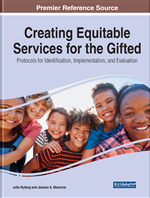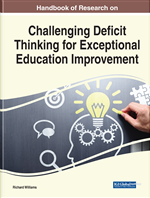Search
Results: 59
Psychological morbidity among suicide-bereaved and non-bereaved parents
OBJECTIVE: To determine how psychological premorbidity affects the risk of depression in parents who lost a child through suicide. DESIGN: Population-based survey. SETTING: Sweden, between 2009 and 2010. PARTICIPANTS: All...
Viewing the body after bereavement due to suicide
BACKGROUND: Research on the assumed, positive and negative, psychological effects of viewing the body after a suicide loss is sparse. We hypothesized that suicide-bereaved parents that viewed their childs body in a formal...
Depression among Parents Two to Six Years Following the Loss of a Child by Suicide
BACKGROUND: Parents who lose a child by suicide have elevated risks of depression. No clinical prediction tools exist to identify which suicide-bereaved parents will be particularly vulnerable; we aimed to create a prediction...
Constructing Culturally-Authentic Differentiated Access Points Using the Content Imperatives
The need to create culturally authentic and specific learning experiences is a call to action that all teachers must answer. Current definitions of differentiation either avoid or exclude topics of culture and race. These...
Published by: IGI Global Scientific Publishing
Lower accuracy in prediction of delivery date in Stockholm County following introduction of new guidelines.
INTRODUCTION: In Stockholm County, new guidelines for predicting the day of delivery were introduced in 2010. Recent clinical use has indicated that the predictive quality might be suboptimal. This study compares the accuracy of...
Gestational Age bi-parietal diameter Crown-Rump Length Estimated date of delivery femur length fetal biometry postterm pregnancy quality assessment Adult Algorithms Biometry Cephalometry Crown-Rump Length delivery Obstetric Female Femur Gestational Age Humans Practice Guidelines as Topic Pregnancy Pregnancy Trimester First Pregnancy Trimester Second Ultrasonography Prenatal
The Home and Community Connections Model
A major myth of gifted education is the idea that gifted and advanced learners should already possess the knowledge and skills necessary to engage in rigorous learning experiences. This myth reinforces the underrepresentation of...
Education Special Education Special Education Social Sciences and Humanities Medicine and Healthcare
Published by: IGI Global Scientific Publishing
Insufficient communication and anxiety in cancer-bereaved siblings
OBJECTIVE: The purpose of this study was to examine siblings' long-term psychological health in relation to their perception of communication with their family, friends, and healthcare professionals during a brother or sister's...
Accuracy in local staging of prostate cancer by adding a three-dimensional T2-weighted sequence with radial reconstructions in magnetic resonance imaging.
Fredrik Jäderling, Tommy Nyberg, Michael Öberg, Stefan Carlsson, Mikael Skorpil, Lennart Blomqvist
Jun 08, 2018
BACKGROUND: The evidence supporting the use of magnetic resonance imaging (MRI) in prostate cancer detection has been established, but its accuracy in local staging is questioned. PURPOSE: To investigate the additional value of...
Distrust in the End-of-Life Care Provided to a Parent and Long-Term Negative Outcomes Among Bereaved Adolescents
Kim Beernaert, Ulrika Kreicbergs, Carl Johan Fürst, Tommy Nyberg, Gunnar Steineck, Tove Bylund-Grenklo
Jun 15, 2018
Purpose Previous research shows that the death of a parent places children at risk for a number of negative outcomes. The role of trust in health care at the end of life has been acknowledged as crucial for patients and adult...
Maximal strength training-induced increase in efferent neural drive is not reflected in relative protein expression of SERCA.
Tiril Tøien, Håvard Haglo, Stian Kwak Nyberg, Shalini Vasudev Rao, Astrid Kamilla Stunes, Mats Peder Mosti, Eivind Wang
Nov 05, 2021
Acute and long-term grief reactions and experiences in parentally cancer-bereaved teenagers
Tove Bylund-Grenklo, Dröfn Birgisdóttir, Kim Beernaert, Tommy Nyberg, Viktor Skokic, Jimmie Kristensson, Gunnar Steineck, Carl Johan Fürst, Ulrika Kreicbergs
Jun 28, 2021
Unresolved grief and its consequences. A nationwide follow-up of teenage loss of a parent to cancer 6-9 years earlier.
PURPOSE: The early loss of a parent is a tragedy and a serious life event. This study investigated grief resolution and morbidity in cancer-bereaved teenagers 6 to 9 years after the loss of a parent to cancer. METHODS: In a...
Self-injury in youths who lost a parent to cancer
Tove Bylund Grenklo, Ulrika Kreicbergs, Unnur A Valdimarsdóttir, Tommy Nyberg, Gunnar Steineck, Carl Johan Fürst
Jun 21, 2018
BACKGROUND: Self-injury, a manifestation of severe psychological distress, is increased in cancer-bereaved youths. Little is known about the potential influence on the risk for self-injury of factors that could be clinically...
Cancer oncology Risk Factors self-injury teenage bereavement Adolescent Adult Bereavement Female Humans Life Change Events Male Neoplasms Parent-Child Relations Parental Death Population Surveillance Risk Factors Self-Injurious Behavior Stress Psychological Surveys and Questionnaires Sweden Terminal Care trust Young Adult
Acute and long-term grief reactions and experiences in parentally cancer-bereaved teenagers
Tove Bylund-Grenklo, Dröfn Birgisdóttir, Kim Beenaert, Tommy Nyberg, Viktor Skokic, Jimmie Kristensson, Gunnar Steineck, Carl Johan Fürst, Ulrika Kreicbergs
May 28, 2021
Effect of Comorbidity on Prostate Cancer-Specific Mortality
Prabhakar Rajan, Prasanna Sooriakumaran, Tommy Nyberg, Olof Akre, Stefan Carlsson, Lars Egevad, Gunnar Steineck, N Peter Wiklund
Jun 14, 2018
Purpose To determine the effect of comorbidity on prostate cancer (PCa)-specific mortality across treatment types. Patients and Methods These are the results of a population-based observational study in Sweden from 1998 to 2012...
Teenagers want to be told when a parent's death is near
Tove Bylund-Grenklo, Ulrika Kreicbergs, Charlotta Uggla, Unnur A Valdimarsdóttir, Tommy Nyberg, Gunnar Steineck, Carl Johan Fürst
Jun 21, 2018
BACKGROUND: We aimed to investigate cancer-bereaved youths' opinions and experiences of being told about a parent's imminent death from cancer and of barriers to this communication. MATERIAL AND METHODS: This nationwide...
Acute and long-term grief reactions and experiences in parentally cancer-bereaved teenagers
Tove Bylund-Grenklo, Dröfn Birgisdóttir, Kim Beernaert, Tommy Nyberg, Viktor Skokic, Jimmie Kristensson, Gunnar Steineck, Carl Johan Fürst, Ulrika Kreicbergs
Jun 29, 2021
Care at End of Life Influences Grief
Malin Lövgren, Josefin Sveen, Tommy Nyberg, Alexandra Eilegård Wallin, Holly G Prigerson, Gunnar Steineck, Ulrika Kreicbergs
Jun 15, 2018
BACKGROUND: A majority of cancer-bereaved siblings report long-term unresolved grief, thus it is important to identify factors that may contribute to resolving their grief. OBJECTIVE: To identify modifiable or avoidable family...
Acute and long-term grief reactions and experiences in parentally cancer-bereaved teenagers.
Tove Bylund-Grenklo, Dröfn Birgisdóttir, Kim Beenaert, Tommy Nyberg, Viktor Skokic, Jimmie Kristensson, Gunnar Steineck, Carl Johan Fürst, Ulrika Kreicbergs
Jun 28, 2021
Background
Previous research shows that many cancer-bereaved youths report unresolved grief several years after the death of a parent. Grief work hypothesis suggests that, in order to heal, the bereaved needs to process...
Cancer loss oncology teenagers ADOLESCENTS Bereavement grief young adults mourning Parental Death Unresolved Grief
Published by: BMC palliative care
Machine Learning and Pharmacometrics for Prediction of Pharmacokinetic Data
Lina Keutzer, Huifang You, Ali Farnoud, Joakim Nyberg, Sebastian G Wicha, Gareth Maher-Edwards, Georgios Vlasakakis, Gita Khalili Moghaddam, Elin M Svensson, Michael P Menden, Ulrika SH Simonsson, On Behalf Of The Unite Tb Consortium
Jul 23, 2022
Pharmacometrics (PM) and machine learning (ML) are both valuable for drug development to characterize pharmacokinetics (PK) and pharmacodynamics (PD). Pharmacokinetic/pharmacodynamic (PKPD) analysis using PM provides mechanistic...
Machine Learning and Pharmacometrics for Prediction of Pharmacokinetic Data
Lina Keutzer, Huifang You, Ali Farnoud, Joakim Nyberg, Sebastian G Wicha, Gareth Maher-Edwards, Georgios Vlasakakis, Gita Khalili Moghaddam, Elin M Svensson, Michael P Menden, Ulrika SH Simonsson, On Behalf Of The Unite Tb Consortium
Sep 02, 2022
Pharmacometrics (PM) and machine learning (ML) are both valuable for drug development to characterize pharmacokinetics (PK) and pharmacodynamics (PD). Pharmacokinetic/pharmacodynamic (PKPD) analysis using PM provides mechanistic...
Oncological and functional outcomes 1 year after radical prostatectomy for very-low-risk prostate cancer
Stefan Carlsson, Fredrik Jäderling, Anna Wallerstedt, Tommy Nyberg, Johan Stranne, Thordis Thorsteinsdottir, Sigrid V Carlsson, Anders Bjartell, Jonas Hugosson, Eva Haglind, Gunnar Steineck
Jun 15, 2018
OBJECTIVES: To analyse oncological and functional outcomes 12 months after treatment of very-low-risk prostate cancer with radical prostatectomy in men who could have been candidates for active surveillance. PATIENTS AND...
|
|< |
< |
1 |


